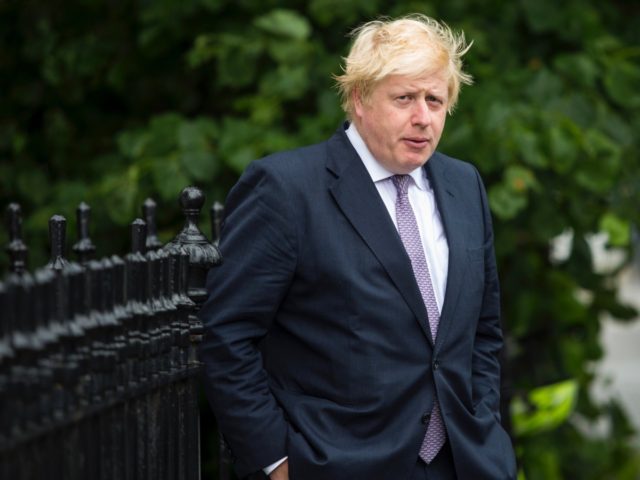Prime Minister Boris Johnson announced that the department tasked with handing out foreign aid will be dissolved and brought under the umbrella of the Foreign Office, creating what he termed a “super department”. However, there will ultimately be no significant cuts in the amount of British taxpayer’s money given to other countries.
Speaking in the House of Commons on Tuesday, Mr Johnson announced that the Department for International Development (DfID) will be merged with the Foreign and Commonwealth Office (FCO), in order to “unite our aid with our diplomacy”, claiming that the move would provide the best value for money for the British taxpayer.
Mr Johnson said that for too long Britain has “been treated as some giant cashpoint in the sky that arrives without any reference to UK interests”.
“It is no use if a British diplomat, one day, goes in to see the leader of a country and urging him to not cut off the head of his opponent and to do something for democracy in his country… if the next day another emanation of the British government is going to arrive with a check for £250 million,” Johnson argued.
“We have to speak with one voice, we must project the UK overseas in a consistent and powerful way, and that is what we are going to do,” he said.
Despite the looming economic collapse due to the Chinese coronavirus and the national lockdown that followed, the prime minister gave no indications that the £14 billion foreign aid budget would be reduced in any way by the merger. The cost of the department is so great, it roughly approximates the total average annual tax take of the residents of a mid-sized British city — like 500,000-population Leicester, for instance — for a whole year.
The leader of left-wing Labour Party, Sir Keir Starmer, claimed that the abolition of DfID would diminish Britain’s “role in the world”, adding: “There is no rationale for making this statement today. The prime minister should stop with these distractions, and get on with the job of tackling the health and economic crises we currently face.”
In a statement given to the Commons, Mr Johnson noted: “DfID outspends the Foreign Office more than four times over, and yet no single decision-maker in either department is able to unite our efforts or take a comprehensive overview.
“We give as much aid to Zambia as we do to Ukraine, though the latter is vital for European security. We give ten times as much aid to Tanzania as we do to the six countries of the Western Balkans, who are acutely vulnerable to Russian meddling,” he said.
“And, regardless of the merits of these decisions, no single department is currently empowered to judge whether they make sense or not: we tolerate an inherent risk of our left and right hands working independently,” Johnson added.
The prime minister also said that the use of foreign aid could be employed in conjunction with securing new free trade deals throughout the world. Though he denied that the move would mark a return to ‘tied aid’ in which foreign aid was provided to countries in return for favours given to the British government.
The move to combine foreign aid with trade to some extent, however, will likely be seen as a warning to the European Union about the UK’s ability to secure trade deals with other countries — once the nation is released from the bloc’s regulations.
On Monday, the prime minister said that the UK will leave the EU on World Trade Organization terms, should the bloc fail to reach a free trade deal with Britain by the autumn.
Follow Kurt on Twitter at @KurtZindulka

COMMENTS
Please let us know if you're having issues with commenting.